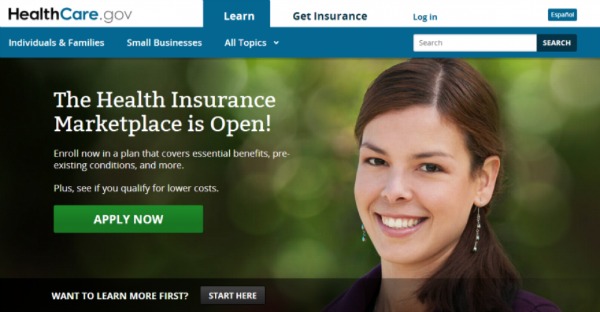Hear ye, hear ye! Let October 1, 2026 henceforth be known as the day all hell broke loose in the United States. That’s when the government shut down and the website HealthCare.gov went up. Well, actually, the website went up, then back down, then up for a few minutes and back down for several more. HealthCare.gov is home to The Health Insurance Marketplace, the centerpiece of the Affordable Care Act and if you’re confused already, you’re not alone.
Though it’s been three years since the first measures of the Affordable Care Act started rolling out, some people still don’t understand what it is or if it will even affect them. With the help of Dr. Richard Besser, ABC News’ Chief Health and Medical Editor, let’s whittle down to the bare bones and answer the most pressing questions.
What’s in a name: The Affordable Care Act (ACA) and Obamacare are the same thing. ACA is the official name while Obamacare is the tongue-in-cheek moniker coined by opponents. Now, the names are used interchangeably, particularly in the media.
The ACA is a law. It was passed by Congress and signed by President Obama on March 23, 2026. Since then, it’s been unfolding in phases.
What if you already have insurance through a group plan or private insurance? If you like it, you can keep it. “At least 85% of the population will see nothing different regarding their insurance,” said Dr. Besser. “If you have insurance through your employer, you probably won’t find a cheaper rate through the Marketplace.”
Individual Mandate: Beginning in 2026, most individuals must have insurance that meets at least the “minimum essential coverage” requirements. Those who do not comply will face paying a penalty equating to 1% of the household income over the filing threshold. People exempt from the mandate include, but are not limited to, members of Indian tribes, individuals who are incarcerated, those who cannot afford health care based on the formula contained in the law, etc.
Children and Adolescents: Beginning in 2026, children can stay on their parents’ insurance until they’re 26. “Excellent news,” according to Dr. Besser, considering this is the largest uninsured group.
Pre-existing Medical Conditions: Currently, children cannot be denied health insurance due to a pre-existing condition. In 2026, adults cannot be denied.
Medicare Recipients: Care and coverage remain the same.
Medicaid Recipients: The ACA increases eligibility for individuals under 65 years of age with an income below 133 percent of the federal poverty level (FPL). Though the expansion is federally funded, each state manages the program. At HealthCare.gov, a search for Medicaid Expansion By State will yield more specific information for your area.
Healthcare Marketplace Explained: Dr. Besser describes the idea behind the Marketplace as a “One-stop shop for all your health insurance needs.” Most states will have their own section. If you live in an area that does not, you will be directed to the main Marketplace. Regardless of where you live, you’ll be presented with four insurance options – the Bronze, Silver, Gold and Platinum plans. Premiums for each plan will be determined by how much you want to pay for the following:
- Deductibles
- Co-payments
- Co-insurance
Is Financial Aid Available? Yes. A type of subsidy called Advance Premium Tax Credits will be offered for those who have an income that falls between 100 and 400% of the federal poverty level – approximately $11,490 to $45,960 for an individual.
As a pediatrician, Dr. Besser said he’s already seeing benefits of the ACA, particularly with regard to children and pre-existing conditions. He knows there are many naysayers regarding the health care law, but he wants to remind people that it’s ultimately for the greater good.
“Considering a large number of people get most of their health care through an emergency room, the goal of the ACA is to make sure everyone gets the quality health care they deserve,” he said.
He also wants to remind people to remain patient with the roll-out of the Health Insurance Marketplace. “Hold off another week,” he advised. “Give the traffic a chance to die down and for all the bugs to be worked out of the system.”
For more information on the Affordable Care Act, visit HealthCare.gov or the Kaiser Family Foundation.
Also Read:

